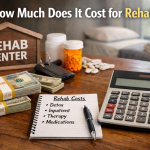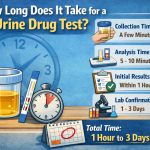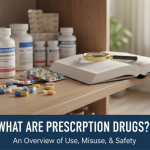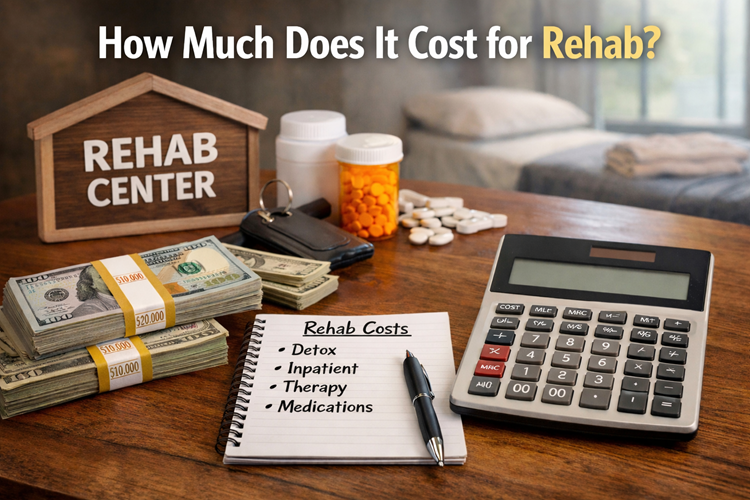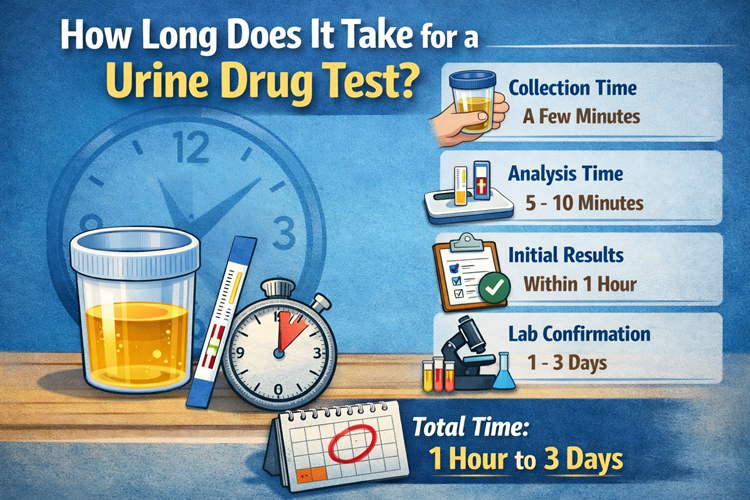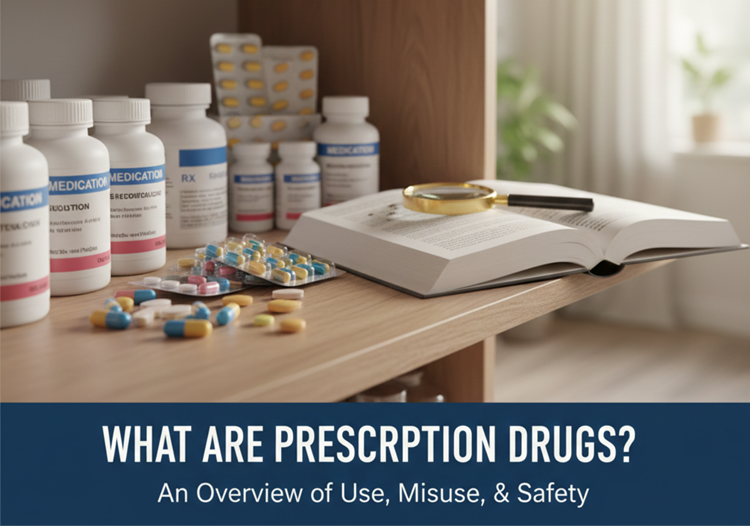Benzodiazepine addiction is a serious problem that affects people from all backgrounds. Benzodiazepines are commonly prescribed for anxiety and sleep disorders.
Understanding the causes, symptoms, and treatment options for benzodiazepine addiction is crucial to help those who are affected by this harmful condition.
What is Benzodiazepine Addiction?
Benzodiazepine or Benzo addiction is a serious condition characterized by an overwhelming and uncontrollable desire for benzodiazepine medications. These medications function by increasing the impact of a neurotransmitter known as gamma-aminobutyric acid (GABA) in the central nervous system which produces tranquilizing and soothing effects.
When used for an extended period or improperly, the brain can develop a reliance on benzodiazepines, ultimately leading to addiction.
Commonly Used Benzodiazepines
There are many different benzodiazepines, and each has a different molecular structure and varying potencies. They are ideally prescribed for short-term use in treating specific anxiety disorders or other stress-related illnesses. Some of the most commonly prescribed are:
- Alprazolam (Xanax)
- Diazepam (Valium)
- Lorazepam (Ativan)
- Clonazepam (Klonopin)
- Triazolam (Halcion)
The time it takes for half of the medication to be processed and eliminated from the body determines how long benzodiazepines stay in a person’s bloodstream. The kidneys and liver process benzodiazepines, and how quickly they are metabolized can depend on a person’s weight, age, and overall health.
Side Effects of Benzodiazepines
Benzodiazepines have intended benefits that provide relief as well as potential drawbacks that can be uncomfortable or risky. It’s important to note that they are not designed for long-term use, although they may be prescribed for that purpose in certain situations. Some of the most common benzodiazepine side effects are:
- Lethargy
- Drowsiness
- Slurred speech
- Dizziness
- Blurred vision
- Mood changes
- Vertigo
- Erratic behavior
When used under the guidance of a medical professional, benzodiazepines are safe and can help treat many anxiety disorders.
Causes of Benzodiazepine Addiction
Benzo addiction can develop from a mix of genetic, environmental, and psychological factors, making it crucial to understand these causes for effective prevention and treatment strategies.
- Genetic Factors. Genetics can play a significant role in how likely someone is to become addicted. Certain genetic differences can affect how the body processes benzodiazepines and how the brain reacts to their effects, which can increase the risk of addiction.
- For instance, variations in specific genes involved in the neurotransmitter system, like GABA receptors, can influence how a person responds to benzodiazepines. Studies have shown that addiction can run in families. Being aware of a history of addiction disorders in a family can help to avoid the start of an addiction problem.
- Environmental Factors. Exposure to persistent stress, trauma, or a turbulent home environment can also increase vulnerability to addiction.
- Chronic stress can disrupt the brain’s stress response systems, leading individuals to seek solace in benzodiazepines.
- Additionally, individuals with a history of trauma may turn to benzodiazepines as a means of self-medication and to escape from emotional pain, resulting in a cycle of dependence. Understanding these complexities can help us approach addiction with compassion and effective strategies.
Recognizing symptoms of addiction
Knowing what signs and symptoms to look for may help you recognize benzodiazepine addiction in yourself or a loved one sooner and may aid in seeking out treatment and support earlier. Signs and symptoms can be both physical and psychological.
The following symptoms may be signs of benzodiazepine addiction:
- Drowsiness
- Dizziness
- Slurred speech
- Impaired coordination
- Headaches
- Changes in sleep patterns
- Increased anxiety
- Confusion
- Memory problems
- Social withdrawal
- Cravings or urges to use benzos
- Taking benzodiazepines at a higher dose than is prescribed.
Approaching those with benzodiazepine addiction with empathy and understanding is crucial. Addiction is complex and requires professional support. Recognizing symptoms and offering help can empower someone in their recovery. Your support can make a significant difference.
Treating Benzodiazepine Addiction
Fortunately, many treatment options are available, making it possible for patients to find the right ones for their needs quickly. Each person deals with addiction differently, and patients have differing needs regarding their physical and mental health.
When selecting a treatment program for yourself or a loved one, there are several factors to take into account, including the duration and severity of the addiction, co-occurring disorders, and physical health.
The first step in this process is to get evaluated to determine the level of care needed. A medical practitioner can help determine whether inpatient or outpatient treatment is appropriate.
Inpatient Treatment
Often, because withdrawal symptoms from benzodiazepines can be so significant, inpatient treatment is a necessary first step in reaching recovery.
Inpatient treatment will begin with a benzodiazepine detox. During this period, patients will experience withdrawal symptoms, which can be severe. Detox in an inpatient setting allows patients to receive medical support 24/7. This will include access to therapists and medications to help make withdrawal more manageable.
Depending on their needs, most people will spend 30-45 days in inpatient treatment. In addition to detox, they will receive other services such as:
- Individual and group therapy
- Nutrition planning
- Wellness opportunities such as yoga, meditation, or water therapy
- Continuous evaluation and ongoing treatment plans
- Medication management
- Planning for outpatient treatment
Inpatient treatment can seem overwhelming, but it often leads to more long-term success in staying sober.
Outpatient Treatment
Different levels of outpatient treatment offer patients the opportunity to receive care of high or low intensity, all while continuing to live at home. Much of the treatment provided in outpatient care settings is the same as the therapies used at an inpatient facility. Let’s look at the common models of treatment in outpatient care.
- Cognitive Behavioral Therapy or CBT. This form of therapy is provided by a psychotherapist who guides the patient in identifying and challenging unhelpful thought processes and learning self-help strategies to change their behaviors.
- Motivational Enhancement Therapy or MET. Therapists work alongside patients to help them manage feelings of uncertainty. Together, they explore these feelings and look at the pros and cons of change.
As you or your loved one nears completion of a recovery program, you may be encouraged to participate in a 12-step program or attend a recovery support group. Being around other people who have faced a similar struggle can be a source of ideas and inspiration in dealing with the ongoing challenges of staying sober.
Benzodiazepine Addiction Treatment at Solutions Healthcare
It’s common for individuals with substance use disorders to feel isolated, but it’s important to know that you’re not alone. Overcoming addiction can be challenging, and it’s easy to feel isolated, but remember that there is hope and support available.
You don’t have to go through this journey alone. By reaching out for help, you can break free from the isolating effects of addiction and find the support and understanding you need to move forward positively.
Our goal is to empower you to reclaim your freedom. It is our duty to support your journey to recovery. We are dedicated to offering exceptional care, solace, and empathy to individuals seeking to overcome addiction. Whether you are battling heroin addiction or any other substance use disorder, please know that we are here to support you every step of the way.
If you or someone you care about is facing challenges with benzodiazepine addiction, we’re here to help. Our rehab facility offers a range of treatment options, and we’re dedicated to bringing hope for a brighter future to our patients.
At Solutions Healthcare, we truly understand the difficulties of addiction. Reach out today and take the first step towards a positive change.
Reference
- American Academy of Family Physicians: Addiction: Part I. Benzodiazepines–Side Effects, Abuse Risk and Alternatives




















